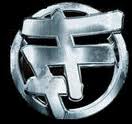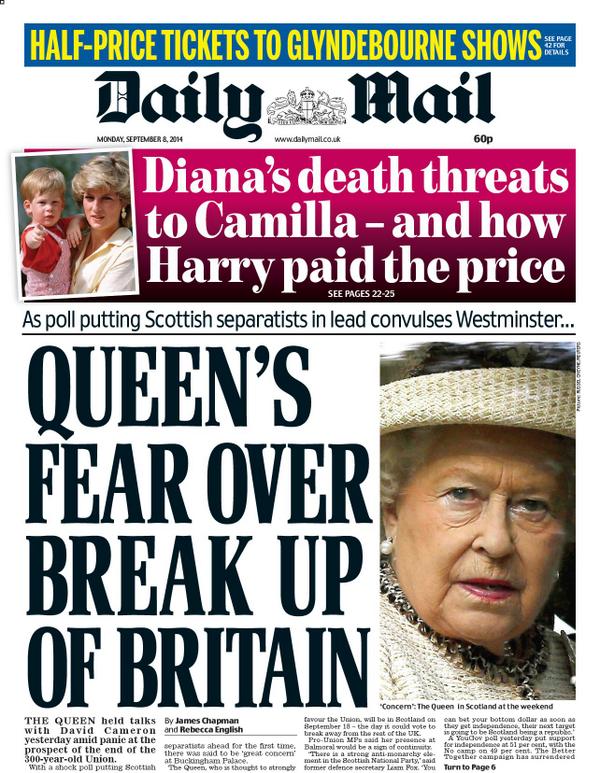Stade Rennais Online - Le forum
Vous n'êtes pas connecté.
- Sujets: Actif | Sans réponse
#1 29-08-2014 17:12:32
- Glasgow_Celtic
- Membre

- Localisation: Glasgow, Scotland/l'Ecosse
- Inscrit(e): 19-10-2011
- Messages: 1 037
- Site Web
Scottish Independence.
I thought I'd do a topic here in the English section, after I seen Puchkin discussing the topic on twitter (in French). It was quite pleasing for me to see it as I didn't think it would be a topic that important enough to discuss outside the UK. 
I don't know where to begin, and this will probably be long, so bare with it, I'll try to get as much information as possible here, and you can question me if you wish on anything that you feel needs to be more clear. I am not a member of any political party, organization so I will not have an answer for everything. I'll try to keep everything as short as possible. 
_________________________________________________________
I begin my story back in the late 1970s (I'm a bit sketchy) when the first referendum on independence happened. There was said to be a large support for independence, but a late change to rules meant that anyone who didn't vote- automatically meant a no vote (including dead people). Unsurprisingly, No won.
The case for devolution seemed the most important political aim for Scotland. To cut a long story short, New Labour (with Tony Blair) gave Scotland devolution, and a new parliament in Edinburgh (which opened in 1999) with several devolved powers such as, education, health, transport, sport etc. The Scottish Parliament was designed so that there isn't a majority government. (This is important)
As for the UK parliament, Labour has been the most popular party in Scotland since the 1950s as they are seen as the centre-left, leftist party, which most Scots (even now) identify with. New Labour meant that most of the ideas the Labour party once stood for, were either removed or were softened which appealed to a lot of people in the UK as people voted for them in elections, until 2010 when the Conservative/Liberal Democrat coalition was formed.
In the Scottish Parliament Labour formed a coalition with the Liberal Democrats until 2007 when the Scottish National Party (SNP), ran a minority government with Alex Salmond as First Minister. In 2011 something surprising happened, the SNP won a majority government. This is surprising as I said previously the Scottish Parliament was made that there can't be a majority government. Furthermore, the polls had Labour in the lead all the way up to the election.
A majority SNP government meant one thing, a referendum on Scottish Independence.
The SNP unsuccessfully tried to get a referendum during their first term in 2007 with no success as the other parties in parliament were pro-union, except the Socialists and the Green Party, who didn't have enough MSPs (Member of Scottish Parliament) to pass the bill. With a majority SNP government, they were able to pass the bill for a referendum without any problem.
This has now kicked off a long campaign for independence, with both sides as vocal and expressive as the next. The Yes and No side are represented by no parties but, campaign teams. Representing yes, are 'Yes Scotland' and representing no are, 'Better Together'. Better Together leader is ex UK chancellor Alistair Darling, whilst the Yes Scotland leader is unofficially Alex Salmond. Early polls suggested that support for independence was only in the low 30%. Alex Salmond has said he doesn't take too much notice at polls as polls said he wouldn't get a majority government, whilst Darling loves the polls as they seem to be in his favour.
What are the reasons for independence?The short version is: People who are pro-independence say that the main reason for Scotland becoming independent is Democracy. Scotland currently has to be under a Conservative (Tory) centre-right government which it didn't vote for, as there is only one Scottish elected Tory MP, yet the whole of Scotland has to be under a Tory prime minister and government. Scotland the Conservatives don't see eye to eye and have a long history with each other, as Scotland has generally been a Labour stronghold for UK elections. Margaret Thatcher who lead the Conservatives in the 80s and early 90s is still disliked here and is seen as responsible for Scotland's voting intentions against the Conservatives.
Another reason for Scotland to become independent is a simple question of, why not? The Financial Times newspaper has said that an independent Scotland can be in one of the top 20 countries in terms of wealth, arguably better than the rest of the UK. Scotland has many natural resources such as oil and energy which bring in billions of pounds worth of money, which all ultimately goes to the UK government. Some Scots feel that this is unfair, as Scotland still faces hardships such as child poverty which is 1 in 4 in some areas of Glasgow. It is confusing why an oil rich country like ours has to face these sorts of problems. Too many Scots have had enough. Food banks are becoming more common in Scotland these days. Food banks are rooms with donated foods that people with no money visit so that they can feed themselves and their family. It has been said that oil only accounts for 15% of the overall Scottish budget, meaning that Scotland has other resources which make up the other 85%. Trident missiles are currently employed on the River Clyde in a station near Glasgow, The upkeep of these missiles cost the Scottish tax payer billions of pounds and will be upgraded, costing even more. Trident will be removed from an independent Scotland and the money saved from the upkeep of these missiles will save Scotland money and can be reinvested in more important things like hospitals and childcare.
Arguments against Independence? The short version is: The biggest rhetoric of the Better Together campaign is that we have the best of both worlds in Scotland. We have the safety and reputation of being in the United Kingdom whilst also have a devolved parliament for local matters. Another line from the No side is that there are many unanswered questions on what will happen post-independence such as which currency we'll use (we'll get back to that). They also say that going independent will be a big risk and that there will be no going back. There has been talks of more powers being given to the Scottish Parliament too (we'll get back to this as well).
Recently, there have been 2 television debates on the subject of independence after a lot of talk from each side, saying the other was too frightened to debate with the other on live TV. Finally a month ago, the first TV debate between Salmond and Darling was broadcast in front of a large TV audience on Public TV. As suspected there was no new information for the viewers, just rehashed promises to try and convince those who were undecided. The latest polls before the debate had No leading by a smaller than they'd like, but considerable margin. Darling had seemed to have won the debate after Salmond wouldn't give a plan B on currency. Salmond stuck to his guns on using the UK pound in a currency union with the rest of the UK. It seemed to the undecided voter that there was no plan B and that Darling had beat him on this issue meaning Darling won the debate, but not entirely convincingly. Going into the second debate which happened this week, the polls were around the same but this time the entire balance of power went completely with Salmond as he blew Darling away on almost every matter discussed. The audience of the second debate was filled with yes, no and undecided voters- by the end of the night Darling lost almost all of the room who seemed to completely change to Salmond. It was unbelievable. A poll after the debate showed that viewers thought Salmond won the debate with 71% voting that he did so. The betting odds of independence happening lowered and the recent poll shows yes now on 47% and no on 53% excluding undecided, going on 1000+ polled. It can now go either way and the British press believe this too, today's Daily Mail ran with the headline 'Union on a Knife-edge'.
The prospect of another Tory Government that could form a coalition with right wing party UKIP, that are becoming ever popular winning the most votes in the EU elections, is starting to put a lot of people off the Union. The UKIP leader was ran out of Edinburgh last year upon his visit to the capital city by an angry crowd.
That'll be that for now, I have probably left a lot out, like the groundwork of campaigning and how football fits into the referendum (because it does). If you wish to know more, please let me know. I know it is a bit long, but it has been a long campaign to this referendum. 
Dernière édition de: Glasgow_Celtic (01-09-2014 22:12:34)

For Rennes news in English: @WeAreRennes
Hors ligne
#2 30-08-2014 18:34:04
- Puchkin
- Random

- Inscrit(e): 06-06-2005
- Messages: 17 534
Re: Scottish Independence.
Thanks for the clear overview about the independence referendum, and for presenting both sides of the argument. As I was telling you earlier, from the point of you of a foreigner and UK resident, I would have some concerns for Scotland as an independent country.
First, as you say, you might be the victims of London's despatching ofd public money, but you also benefit from quite a few of the UK's public services, such as the NHS for example (correct me if I am wrong), and in general, London takes resources but also includes Scotland in its spending. I would like to see what the ratio would be, should Scotland be given freedom to decide its own budget.
The other thing is: I am never too excited by the prospect of a populist leader taking the power in any country, Alex Salmond doesn't seem like a bad guy, but he is one of them, and I doubt there is much depth or program behind his ability as a public speaker. Once again, I might be wrong, but it it easy to speak of symbols, opression and the parent state stealing the people's money... It is much harder to then become the man in charge and govern fairly to the benefit of the nation. Sadly, I don't think Salmond is truly qualified for the second part.
To be honnest, I am quite dubious about this all. This wouldn't change anything for someone like me living in the South of England, but I struggle to see how Scotland could truly benefit from independance. And there is the worry that a very small portion of the elites would go on to waste the vast resources of Scotland in just a few years and put everyone else in a worse situation.
I would like to know more about the football situation though. I would expect that the whole Unionist/Anglican vs Separatist/Catholic separation will kick off stronger than ever between Celtic/Rangers and other enemy clubs from the other Scottish Cities (Hearts/Hibernians, Dundee etc...). Do you think this will have a real influence on the outcome of the vote though?
Hors ligne
#3 30-08-2014 19:24:56
- Rubiosrfc35
- Alberto Balsalm

- Inscrit(e): 22-01-2012
- Messages: 1 144
Re: Scottish Independence.
You focus mainly/only on the economic part Puchkin, but what I see (as a foreigner not living in the UK) as a huge point is the cultural part. I saw a Celtic fan saying in a TV show (that I can't find anymore) something like "Sometimes culture is more important than the economy". The current UK government's policies are clearly making more and more Scottish change their minds. And as links seem to be becoming stronger between the Tories and the UKIP, Scotland, who has always been the most pro-EU region in the UK, might become independent in order to have policies closer to what they voted for.
Hors ligne
#4 31-08-2014 01:38:37
- Dnairb
- Evêr ed Ruednev

- Localisation: Paris
- Inscrit(e): 22-01-2008
- Messages: 8 344
Re: Scottish Independence.
UK sucks, vote yes to independance, create your own state nationalize the ressources and distribute them fairly amongst the ones that need them, DO NOT enter EU since they would do exactly the same UK is currently doing, build strong relationship with Iceland, and the future is yours!
Jorge Sampaoli : "Une fois, j'étais avec une femme dans un bar. On a parlé toute la nuit, on a ri, flirté, je lui ai offert des verres. Et puis vers 5 heures du matin, un type est arrivé, l'a prise par le bras et l'a emmenée aux toilettes pour lui faire l'amour avant de partir avec elle. Mais ce n'est pas grave, puisque j'avais eu l'essentiel de la possession cette nuit-là."
Hors ligne
#5 31-08-2014 12:29:30
- Glasgow_Celtic
- Membre

- Localisation: Glasgow, Scotland/l'Ecosse
- Inscrit(e): 19-10-2011
- Messages: 1 037
- Site Web
Re: Scottish Independence.
Thanks for the clear overview about the independence referendum, and for presenting both sides of the argument. As I was telling you earlier, from the point of you of a foreigner and UK resident, I would have some concerns for Scotland as an independent country.
First, as you say, you might be the victims of London's despatching ofd public money, but you also benefit from quite a few of the UK's public services, such as the NHS for example (correct me if I am wrong), and in general, London takes resources but also includes Scotland in its spending. I would like to see what the ratio would be, should Scotland be given freedom to decide its own budget.
It has been clear for quite some time now than in the near future, 'the barnett formula' which is used to divide what Scotland gets from the UK treasury will change, and will not be in the benefit of Scotland.
The other thing is: I am never too excited by the prospect of a populist leader taking the power in any country, Alex Salmond doesn't seem like a bad guy, but he is one of them, and I doubt there is much depth or program behind his ability as a public speaker. Once again, I might be wrong, but it it easy to speak of symbols, opression and the parent state stealing the people's money... It is much harder to then become the man in charge and govern fairly to the benefit of the nation. Sadly, I don't think Salmond is truly qualified for the second part.
I don't like Alex Salmond, some of his decisions in government have people of my political mindset in disbelief. I'll explain that in the football section. I don't think he will be Prime Minister in an independent Scotland- The SNP will split and a new Labour Part will be formed and Salmond won't be leading it.
To be honnest, I am quite dubious about this all. This wouldn't change anything for someone like me living in the South of England, but I struggle to see how Scotland could truly benefit from independance. And there is the worry that a very small portion of the elites would go on to waste the vast resources of Scotland in just a few years and put everyone else in a worse situation.
I fully agree, I think ultimately there won't be any difference from what we are at now, for the common person. But our country is being taken for a ride and we are getting tired of it.
I would like to know more about the football situation though. I would expect that the whole Unionist/Anglican vs Separatist/Catholic separation will kick off stronger than ever between Celtic/Rangers and other enemy clubs from the other Scottish Cities (Hearts/Hibernians, Dundee etc...). Do you think this will have a real influence on the outcome of the vote though?
As you would suspect, there is always going to be a unionist majority at rangers and a separatist majority at Celtic. However, there are a good amount in each team that don't follow the trend. There are groups on Twitter 'ranger for Yes' and 'Celts for UK' which have a decent following to them. From what I've seen, the rangers for Yes have came out and said that they don't buy into all the unionist nonsense that seems to accompany being a rangers fan, whereas those who are voting no on the Celtic side, from what I've seen argue that in an independent Scotland- religious minorities and races will be targeted (like catholic Irish) and blamed should independence not work. The Orange Order, have said they will leave after a Yes vote. Both sides aren't the best supporters of the SNP due to a controversial law that came out a couple of years ago, restricting free speech of singing songs of the conflict in Ireland- republican and unionist. To someone who is neutral this would seem a good law- however the ins and outs of the law are not professional, and you can get arrested for 'aggressively blessing yourself'.
Alex Salmond is the person who is under scrutiny for this law as he himself said he doesn't have a 'monopoly of knowledge' on the issue. However, most Celtic fans know that the referendum isn't about Alex Salmond and the SNP and the vast majority will vote yes, meanwhile rangers fans voting no mostly still believe that it is a vote for Salmond and SNP, on top of the other unionist tenancies they have.
Dernière édition de: Glasgow_Celtic (01-09-2014 22:16:00)

For Rennes news in English: @WeAreRennes
Hors ligne
#6 31-08-2014 12:32:41
- Glasgow_Celtic
- Membre

- Localisation: Glasgow, Scotland/l'Ecosse
- Inscrit(e): 19-10-2011
- Messages: 1 037
- Site Web
Re: Scottish Independence.
You focus mainly/only on the economic part Puchkin, but what I see (as a foreigner not living in the UK) as a huge point is the cultural part. I saw a Celtic fan saying in a TV show (that I can't find anymore) something like "Sometimes culture is more important than the economy". The current UK government's policies are clearly making more and more Scottish change their minds. And as links seem to be becoming stronger between the Tories and the UKIP, Scotland, who has always been the most pro-EU region in the UK, might become independent in order to have policies closer to what they voted for.
Exactly. Scots have little in common with conservatives and UKIP, hence why they only have 1 MP here (in the rich borders). UKIP leader, Nigel Farage has been ran out if the country on a couple of occasions now, and whenever he appears here, there is always good numbers in protests. The UKIP vote in Scotland is drawn through little narrow-minded idiots who blame immigrants for Scotland's problems. The voters of UKIP here are bigots and not people you want to be around.
I read a comparison the other day that went something like:
James Connolly and co fought for Irish freedom through independence, did they think of the currency and economy before starting their offensives- no. They just wanted their country free and independent.
Dernière édition de: Glasgow_Celtic (31-08-2014 12:36:25)

For Rennes news in English: @WeAreRennes
Hors ligne
#7 03-09-2014 12:22:42
- Fonky Fab
- Membre

- Localisation: York
- Inscrit(e): 23-05-2009
- Messages: 1 420
Re: Scottish Independence.
If yes is voted, this would be a massive impact for UK/England and their international influence.
Their military force would be reduced with the question to keep the nuclear deterrent.
Their economy influence would also be reduced, Scotland population is about 5 Million.
The whole place of UK in the world might change.
And then what would happen with Northern Ireland? Will they want to stay in the UK if Scotland votes yes?
From cultural identity stand point, what would be the new flag? The new country name?
Lots of questions to be fixed which would cost an awful lot of money.
Lots of question which might divide population as we are speaking about cultural identity.
Lots of question leading UK people against Scottish independence.
18th of Sept will be a big turn in British history.
"Je trinque souvent très rarement." Sylvain Wiltord
Hors ligne
#8 03-09-2014 14:16:29
- Puchkin
- Random

- Inscrit(e): 06-06-2005
- Messages: 17 534
Re: Scottish Independence.
The next few years in general. What happens in Scotland will be an interesting test for the UK and England itself, as it is more and more likely that the UK (or what is left of it) will have a referendum in a few years to discuss an exit from the European Union (for exactly the same reasons Celtic developped about the Scotland and the UK). So we could indeed end up having an independent Scotland
Northern Ireland is different, they are already at wars since countless years and one of the reasons it that some want to be part of the unions, some want to be independent. Now, THIS could perfectly happen to Scotland as well in the future, when things start going wrong.
Also, I agree with you, Rubio, UKIP and SNP are completely different: UKIP want the "independence" of the UK, even though they are mainly focused on England, SNP want the independence of Scotland. At the end of the day, they are nationalists, they have a narrow vision of their country, and they are, on a long-term, dangerous parties.
Now, if independence happens and a party not led by ultra-nationalists happens to return to power, as you (Celtic) say is likely, why not.
Again, I don't think the idea is irrelevant, I am just worried Scotland might not be able to manage a smooth transition, and it might appear that amongst all bad aspects of being part of the UK, you might end up losing some great benefits (and I will use the exemple, again, of the NHS, which is one example and one of the greatest assets of being part of the UK)
Hors ligne
#9 03-09-2014 16:00:53
- belis
- Vieux moutard que jamais

- Localisation: München
- Inscrit(e): 30-08-2006
- Messages: 7 266
Re: Scottish Independence.
Puchkin, you seem to worry a lot about NHS but I don't see where that would be a problem for Scotland. IS that so difficult to organize a new 100% Scottish NHS?
It seems to be a small problem to solve compared to the other ones.
Also the comparison between the relationship UK/Europe and UK/Scotland is a little bit far-fetched.
An independant Scottland in the European Union would be a completely different situation than Scottland in the UK.
"Ouais c'est vrai c'est un hold up, mais cette victoire on l'a pas volée" Y. M'vila le soir d'un Toulouse-Rennes
"Le barbecue à gaz c'est de la merde" S. Armand
Hors ligne
#10 03-09-2014 19:43:29
- Glasgow_Celtic
- Membre

- Localisation: Glasgow, Scotland/l'Ecosse
- Inscrit(e): 19-10-2011
- Messages: 1 037
- Site Web
Re: Scottish Independence.
Their military force would be reduced with the question to keep the nuclear deterrent.
There are only 895 Scottish soldiers, not that many to be lost actually.
From cultural identity stand point, what would be the new flag? The new country name?
It would be the same flag, just the Scotland flag removed. Although Wales may finally get a place on the flag. The new country would still be called the United Kingdom.
Lots of question which might divide population as we are speaking about cultural identity.
There is no such thing as a cultural 'British identity'. Each country is too different to have a definitive collective identity.
Northern Ireland?
The Catholic numbers are growing and will eclipse the protestants sooner than thought. I'd expect a united Ireland in 15/20 years, even if we don't win our referendum.
UKIP/SNP
You're right, they are different parties. UKIP wants United Kindom independence from the EU. You're right to say that UKIP focus more on England than Scotland, the reason being is Scotland as a majority don't stand for the right wing agenda that they do. Their leader got chased from Edinburgh last year. SNP are not a bad party and are not seen as in the same controversial vein as UKIP are in the UK. SNP are a centre-left party who have actually done more good than bad in their policies as a whole and have carried out everything in their election winning manifesto, except one or two things.
I am not an SNP supporter, I am a Scottish Green Party voter, as they deal more with issues I am interested in, they are more to the left of SNP but not as far left as the Socialists. The Greens are the only other elected party in the Scottish Parliament that support independence.
I don't believe that SNP will be the first independent government. They have done what their main aim is and they will split.
Dernière édition de: Glasgow_Celtic (03-09-2014 20:03:44)

For Rennes news in English: @WeAreRennes
Hors ligne
#11 03-09-2014 21:40:30
- philippe22
- The last red

- Localisation: Sweet home Mockba
- Inscrit(e): 19-02-2010
- Messages: 9 676
Re: Scottish Independence.
Hy guy , 
What is SNP ? Please . 
'' ICI C'EST ROAZHON , et chez moi ST BROC ''
Hors ligne
#12 03-09-2014 22:28:20
- Glasgow_Celtic
- Membre

- Localisation: Glasgow, Scotland/l'Ecosse
- Inscrit(e): 19-10-2011
- Messages: 1 037
- Site Web
Re: Scottish Independence.
Hy guy ,
What is SNP ? Please .
The SNP are 'The Scottish National Party', a centre-left political party currently in a majority government in the Scottish Parliament.
Their ultimate aim is for Scotland to become an independent country.

For Rennes news in English: @WeAreRennes
Hors ligne
#13 04-09-2014 11:16:17
- Puchkin
- Random

- Inscrit(e): 06-06-2005
- Messages: 17 534
Re: Scottish Independence.
Puchkin, you seem to worry a lot about NHS but I don't see where that would be a problem for Scotland. IS that so difficult to organize a new 100% Scottish NHS?
It seems to be a small problem to solve compared to the other ones.
Also the comparison between the relationship UK/Europe and UK/Scotland is a little bit far-fetched.
An independant Scottland in the European Union would be a completely different situation than Scottland in the UK.
As I said, this is an example. Most of the public services are pretty much centralised to London (Which I don't say is a good thing), and Scotland will have to be quick on the ball to actually make the transition work effectifely when they lose the funding and organisation from being part of the UK.
This is also where Scotland might realise that all the money that they think is unfairly taken from them is, at least in part, reinvested into running the country's economy. Again, it could be that Scotland runs its own finances better, but if independent, the country will have only two or three years to reorganise all its public spending, adminstration, reallocate its resources and make sure not to bust them, change its financial system (the UK won't let them use the pound, despite Salmond asking to keep it).
Again, I am only talking about the economical point of view, because I really believe this is what might be the big stumbling block in that all independence thing. The first five to ten years. If they can get it running immediately, make good use of the resources and run the country in a fair and sustainable way, the Scotland has the potential to be a highly successful country and a commercial force to reckon with. But this is a big IF, and if anything starts going wrong in the transition, this could end up being a well dirty mess. But I guess this is always the case in such situations...
Hors ligne
#14 04-09-2014 11:41:37
- Glasgow_Celtic
- Membre

- Localisation: Glasgow, Scotland/l'Ecosse
- Inscrit(e): 19-10-2011
- Messages: 1 037
- Site Web
Re: Scottish Independence.
belis a écrit:Puchkin, you seem to worry a lot about NHS but I don't see where that would be a problem for Scotland. IS that so difficult to organize a new 100% Scottish NHS?
It seems to be a small problem to solve compared to the other ones.
Also the comparison between the relationship UK/Europe and UK/Scotland is a little bit far-fetched.
An independant Scottland in the European Union would be a completely different situation than Scottland in the UK.
This is also where Scotland might realise that all the money that they think is unfairly taken from them is, at least in part, reinvested into running the country's economy. Again, it could be that Scotland runs its own finances better, but if independent, the country will have only two or three years to reorganise all its public spending, adminstration, reallocate its resources and make sure not to bust them, change its financial system (the UK won't let them use the pound, despite Salmond asking to keep it).
Leader of Better Together (the no side) and Ex Chancellor Alistair Darling says we can use the pound.

For Rennes news in English: @WeAreRennes
Hors ligne
#15 04-09-2014 11:52:39
- Puchkin
- Random

- Inscrit(e): 06-06-2005
- Messages: 17 534
Re: Scottish Independence.
The problem is, Darling has got no say in the matter whatsoever, at this moment, and Big Dave keeps reminding everyone that there won't be any monetary union with Scotland if they decide to be independent: http://www.telegraph.co.uk/news/uknews/ … vings.html
Again, the decisison could be different once the independence voted and the debate over and done with, but Cameron spent so much time saying there would be no monetary union with Scotland, a U-Turn would be impossible for him less than a year before the general election...
Hors ligne
#16 04-09-2014 12:14:41
- Fonky Fab
- Membre

- Localisation: York
- Inscrit(e): 23-05-2009
- Messages: 1 420
Re: Scottish Independence.
That just makes me think that we might see price of the single malt increase... I will recover my Talisker and Lagavulin stock immediately 
Their military force would be reduced with the question to keep the nuclear deterrent.
There are only 895 Scottish soldiers, not that many to be lost actually.
I was more thinking about nuclear facilities based in western scotland than soldiers.
UK nuclear submarines are based in Faslane and nuclear weapons in Colport.
Scotish parliament is clear: those facilities need to leave by 2020.
First, this timeframe seems quite very stretch. UK will face people manifestations where they would be willing to move the new facilities.
Secondly, this might cost a huge amount of money.
All in one, there would be debate in UK whether or not to keep Britain's nuclear forces.
Obviously, US would put big pressure on UK to retain nuclear weapons.
Then negociations might be to find agreement between nuclear facilities removal timeframe and a single currency (suggested by Prof Malcolm Chalmers, research director at the Royal United Services Institute (Rusi) and co-author of a recent report on relocating the Trident base).
Dernière édition de: Fonky Fab (04-09-2014 12:15:31)
"Je trinque souvent très rarement." Sylvain Wiltord
Hors ligne
#17 04-09-2014 12:40:29
- Glasgow_Celtic
- Membre

- Localisation: Glasgow, Scotland/l'Ecosse
- Inscrit(e): 19-10-2011
- Messages: 1 037
- Site Web
Re: Scottish Independence.
The problem is, Darling has got no say in the matter whatsoever, at this moment, and Big Dave keeps reminding everyone that there won't be any monetary union with Scotland if they decide to be independent: http://www.telegraph.co.uk/news/uknews/ … vings.html
Again, the decisison could be different once the independence voted and the debate over and done with, but Cameron spent so much time saying there would be no monetary union with Scotland, a U-Turn would be impossible for him less than a year before the general election...
Cameron and the no side will obviously try and foresee many restrictions for an independent Scotland and keeping the pound from Scotland is one of them.
It would not be in the best interests for the rest of the UK for Scotland not to have the pound. We are their 2nd biggest trading partners, and we have put up our defences by saying that we won't take our fair share of the UK debt if we are not allowed to use the pound in a currency union.
Scotland can use the pound without the rest of the UK's say so. This is called 'sterlingisation'. The fact of the matter is we WILL use the pound, but it'd be in the best interests of the UK for it to be in a currency union and the no side know that.
I also want to make it clear that using the pound is not my personal choice, I'd rather we had our own currency. Most on the left in Scotland want this, and there is a good chance this will happen but we would need time to set this up and using the pound in this period is just sensible thinking. Think about the amount of countries that were under British rule like Canada that used the pound until they set up their own currency- why can't we do that?
Dernière édition de: Glasgow_Celtic (04-09-2014 12:44:54)

For Rennes news in English: @WeAreRennes
Hors ligne
#18 04-09-2014 12:49:33
- Glasgow_Celtic
- Membre

- Localisation: Glasgow, Scotland/l'Ecosse
- Inscrit(e): 19-10-2011
- Messages: 1 037
- Site Web
Re: Scottish Independence.
That just makes me think that we might see price of the single malt increase... I will recover my Talisker and Lagavulin stock immediately
Glasgow_Celtic a écrit:Their military force would be reduced with the question to keep the nuclear deterrent.
There are only 895 Scottish soldiers, not that many to be lost actually.
I was more thinking about nuclear facilities based in western scotland than soldiers.
UK nuclear submarines are based in Faslane and nuclear weapons in Colport.
Scotish parliament is clear: those facilities need to leave by 2020.
First, this timeframe seems quite very stretch. UK will face people manifestations where they would be willing to move the new facilities.
Secondly, this might cost a huge amount of money.
All in one, there would be debate in UK whether or not to keep Britain's nuclear forces.
Obviously, US would put big pressure on UK to retain nuclear weapons.Then negociations might be to find agreement between nuclear facilities removal timeframe and a single currency (suggested by Prof Malcolm Chalmers, research director at the Royal United Services Institute (Rusi) and co-author of a recent report on relocating the Trident base).
This is the section that I'm probably less 'clued up' on- post independence- but from what I understand, these bases will remain but just not in the form they are now and will be non-nuclear.
I am all in favour, like a vast number of Scots, who do not want trident missiles on the River Clyde, so close to the biggest city, Glasgow (where I live  ) They cost the Scottish tax payer billions of pounds and the upgrade that they are planned to get too. They are just pointless metal that probably won't ever be used in combat.
) They cost the Scottish tax payer billions of pounds and the upgrade that they are planned to get too. They are just pointless metal that probably won't ever be used in combat.
I am a green party supporter, so you can understand my issues with not having nuclear weapons. 
Dernière édition de: Glasgow_Celtic (04-09-2014 12:52:53)

For Rennes news in English: @WeAreRennes
Hors ligne
#19 04-09-2014 13:07:44
- Fonky Fab
- Membre

- Localisation: York
- Inscrit(e): 23-05-2009
- Messages: 1 420
Re: Scottish Independence.
Scottish 'Yes' vote could cause eurozone-style currency crisis, Goldman Sachs warns
Goldman Sachs, the bank leading the world...
"Je trinque souvent très rarement." Sylvain Wiltord
Hors ligne
#20 04-09-2014 13:37:15
- Glasgow_Celtic
- Membre

- Localisation: Glasgow, Scotland/l'Ecosse
- Inscrit(e): 19-10-2011
- Messages: 1 037
- Site Web
Re: Scottish Independence.
Scottish 'Yes' vote could cause eurozone-style currency crisis, Goldman Sachs warns
Goldman Sachs, the bank leading the world...
Not the best to bring up when speaking to me- I wouldn't trust Goldman-sachs with a penny of my money. 
Dernière édition de: Glasgow_Celtic (04-09-2014 13:38:07)

For Rennes news in English: @WeAreRennes
Hors ligne
#21 04-09-2014 13:53:24
- belis
- Vieux moutard que jamais

- Localisation: München
- Inscrit(e): 30-08-2006
- Messages: 7 266
Re: Scottish Independence.
what would happen to the UK flag without Scottland ?

ugly 
"Ouais c'est vrai c'est un hold up, mais cette victoire on l'a pas volée" Y. M'vila le soir d'un Toulouse-Rennes
"Le barbecue à gaz c'est de la merde" S. Armand
Hors ligne
#22 04-09-2014 17:21:07
- Glasgow_Celtic
- Membre

- Localisation: Glasgow, Scotland/l'Ecosse
- Inscrit(e): 19-10-2011
- Messages: 1 037
- Site Web
Re: Scottish Independence.
not that bad at all (for me anyway), there's the red for Stade Rennais and then the Green and White for Celtic. 

For Rennes news in English: @WeAreRennes
Hors ligne
#23 06-09-2014 22:58:10
- Glasgow_Celtic
- Membre

- Localisation: Glasgow, Scotland/l'Ecosse
- Inscrit(e): 19-10-2011
- Messages: 1 037
- Site Web
Re: Scottish Independence.
A new poll has been revealed that Yes is now leading. 51% in the latest poll. 


For Rennes news in English: @WeAreRennes
Hors ligne
#24 07-09-2014 23:23:12
- Glasgow_Celtic
- Membre

- Localisation: Glasgow, Scotland/l'Ecosse
- Inscrit(e): 19-10-2011
- Messages: 1 037
- Site Web
Re: Scottish Independence.

She'd still be head of state for Scotland. 


For Rennes news in English: @WeAreRennes
Hors ligne
- Utilisateurs enregistrés en ligne dans ce sujet: 0, Invité(s): 1
- [Bot] ClaudeBot
[ Généré en 0.016 secondes, 10 requêtes exécutées - Utilisation de la mémoire: 818.01 KiO (Pic : 886.91 KiO) ]

